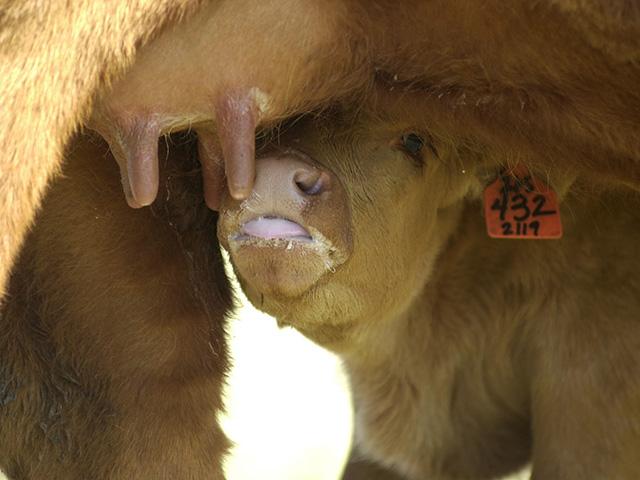Ask the Vet
Prevent Scours in Calves, Don't Just Treat It
READER QUESTION:
We had a very bad cold, wet snap with lots of snow, ice and rain right in the middle of calving season. Several calves started scouring, and we treated them with scour boluses and penicillin. We lost four of them. We have not had any more cases since, but we'd like to know what we can do to prevent this in the future.
DR. MCMILLAN'S ANSWER:
There are so many potential causes when it comes to scours, you really need to get your veterinarian involved. A good history of what happened leading up to this is going to be very important. Some key information would include age of the calves, age of the dams, body conditions, available feed, available minerals, and whether cows had been vaccinated and dewormed.
P[L1] D[0x0] M[300x250] OOP[F] ADUNIT[] T[]
You note this started when bad weather moved in. The cold, wet conditions you describe can sometimes keep calves from getting up and nursing quickly. That can mean they don't get enough colostrum those first few critical hours of life.
Also, muddy, nasty conditions increase the chances disease will spread. They also make maintaining a normal body temperature difficult at best.
If cows are thin, or lacking in balanced nutrition including minerals, colostrum quality may suffer. All these things can work together to increase the potential for sick calves.
An accurate diagnosis is the first step in knowing how to treat the calves and in how to prevent future outbreaks. Often this means doing necropsies of dead or dying calves. Calf scours can be caused by several different viruses, bacteria and parasites.
Antibiotics have no effect on viruses or parasites. Antibiotics only help if the bacteria involved is susceptible to the antibiotics you give. Just as importantly, antibiotics do not walk up to bacteria and ask if they are good or bad. They just kill what they can. So, in many cases, you may kill good bacteria and make the situation worse. That's why the decision on whether, when and what antibiotics to use must be made in consultation with your herd veterinarian.
As you discuss this with your veterinarian, ask for a review of your overall herd health program. Look closely at nutrition and vaccinations.
If the situation recurs, act fast to get a diagnosis and a treatment plan underway.
**
Editor's Note:
Please contact your veterinarian with questions pertaining to the health of your herd or other animals. Every operation is unique, and the information in this column does not pertain to all situations. This is not intended as medical advice but is purely for informational purposes.
Write Dr. Ken McMillan at Ask the Vet, 2204 Lakeshore Dr., Suite 415, Birmingham, AL 35209, or email vet@progressivefarmer.com.
(c) Copyright 2022 DTN, LLC. All rights reserved.






